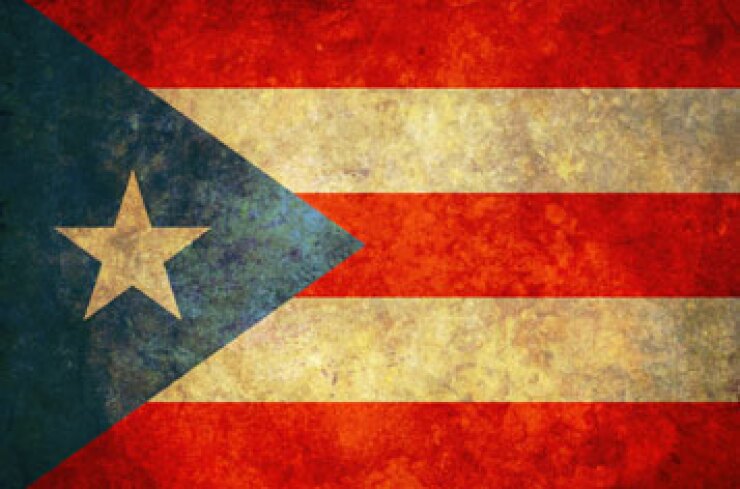Puerto Rico’s debt restructuring is now entering its crucial final stage — one that will determine the island’s future financial trajectory.
The groundwork for this restructuring was established on June 30, 2016, when Congress enacted the Puerto Rico Oversight, Management, and Economic Stability Act, or PROMESA, to exercise its territorial power over Puerto Rico by creating a seven-member Financial Oversight and Management Board to oversee the island’s return to fiscal responsibility and access to capital markets.
Over the last four years, Puerto Rico’s creditors and the Oversight Board have engaged in protracted litigation, and at times highly contentious negotiations. Now, as a possible final resolution emerges in the pending proceedings before Federal District Court Judge Laura Taylor Swain, the Board, as Puerto Rico’s representative, seeks court approval of a debt adjustment plan this November.

Through the debt adjustment plan, the Board seeks approval of a settlement that would reduce the Commonwealth’s overall debt and other claims — from $35 billion of creditor claims to $7.4 billion of new debt.
Unfortunately, the plan places an inordinate financial burden on public pensioners by imposing an across-the-board 8.5% pension cut on those receiving more than $1,500 in monthly benefits, while also freezing benefits for judges and teachers.
To put this in perspective, the average monthly public pension benefit for federal and state pensions is approximately $2,300 and $1,800 respectively, according to the Pension Rights Center. The Board’s cuts are aimed at pensions that are significantly below those amounts.
The Board has argued these pension cuts and freezes are necessary as a matter of bankruptcy law based on recent cases under Chapter 9 of the Bankruptcy Code — the municipal restructuring process on which PROMESA is primarily based.
That assertion, however, fails to recognize that, in the context of government-sponsored pensions, pension cuts can only be implemented if they satisfy the court’s sense of fairness.
The Board also argues that as a matter of fiscal prudence the pension cuts and freezes are necessary to assure continued payments to all retirees in the future. But the Board has turned a blind eye to special considerations that militate against any further reductions in pension benefits.
The people of Puerto Rico have suffered through a devastating economic recession caused in part by Puerto Rico’s colonial status as a territory of the United States.
Residents receive unequal treatment under federal funding statutes as compared to the states, pay the highest sales and use tax in the United States, and suffer a poverty rate of 43.1% (more than double that of the highest state poverty rate of 19.7% in Mississippi).
In addition, the impact of two devastating hurricanes in 2017, earthquakes since 2019, and the persistent COVID-19 pandemic have destroyed the homes and livelihoods of thousands of island residents.
Puerto Rico’s public pensioners already experienced significant cuts to their benefits prior to 2017 so that the government could continue making debt service payments to bondholders.
In 2013, the government passed three separate laws to reduce pension benefits, increase the amount of employee contributions, and raise the retirement age under the pension plans at each of the government’s three primary retirement systems.
According to the Board’s own expert report issued in September 2019, those laws resulted in benefit reductions as high as 82% for some participants. And since 2007, all retirees (other than judges) also have not received cost of living adjustments.
This reduces the real-world value of future pension payments due to inflation. By the Board’s own estimates, the absence of cost of living adjustments will cause retirees to lose 39% of the purchasing power of their already-reduced pensions in the 30 years after retirement.
Although a direct comparison of recoveries under the proposed plan of adjustment appears to show that bondholders will experience much larger losses (up to 32.2%) than government pensioners (8.5%), the raw numbers fail to tell the whole story.
Unlike financial creditors who will receive an interest-bearing instrument that accounts for the time value of money, pensioners are only receiving a promise of future payment without cost of living adjustments. Financial creditors can also trade the bonds they receive under the plan or diversify their risk through portfolio management.
Pensioners do not have that option — they are stuck with the plan’s non-tradable promise subject to Puerto Rico’s future ability to pay. Furthermore, any pensioner losses directly affect whether a family can retire with dignity after a dedicated life of public service, a result that would ultimately strain the government’s social services budget.
Having earnestly settled with every major constituency, it is time for the Board to do the right thing by abandoning unnecessary pension cuts and freezes.
The Board must realize that Puerto Rico’s loyal public servants did not create the Island’s fiscal crisis and fairness dictates they should not once again be asked to pay for damage that occurred through no fault of their own.
John J. Rapisardi is a partner at O’Melveny & Myers LLP and legal counsel to the Puerto Rico Fiscal Agency and Financial Advisory Authority (AAFAF).





